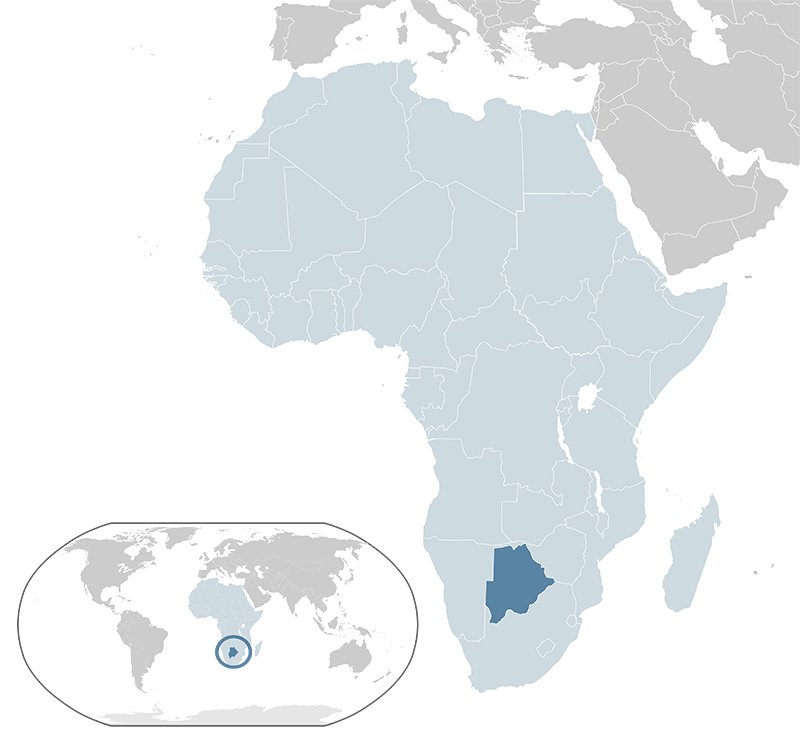
- Population:
- 2,521,000
- Religion:
- Christianity
Botswana was originally inhabited by the San people and later by Bantu-speaking groups. In the 19th century, it became a British protectorate known as Bechuanaland. It gained independence in 1966, establishing itself as a stable democracy. Unlike many African nations, Botswana has experienced consistent economic growth, largely due to its diamond mining industry. It has also successfully managed its wildlife conservation and tourism sectors, making it one of Africa’s most stable and prosperous nations.
Botswana, officially the Republic of Botswana, is a landlocked country in Southern Africa. It is bordered by Namibia to the west and north, Zimbabwe to the northeast, and South Africa to the south and southeast. Covering approximately 581,730 square kilometers, Botswana has a population of about 2.4 million people as of 2023. The capital and largest city is Gaborone. The official language is English, while Setswana is widely spoken. Botswana is predominantly flat, with up to 70% of its territory covered by the Kalahari Desert. The country has diverse wildlife habitats, including the Okavango Delta and Chobe National Park, which hosts the world's largest concentration of African elephants. Since gaining independence from the United Kingdom in 1966, Botswana has maintained a stable democratic government. Its economy is one of the fastest-growing in the world, largely due to diamond mining, tourism, and a prudent fiscal policy. Botswana is a member of the United Nations, the African Union, and the Southern African Development Community.






